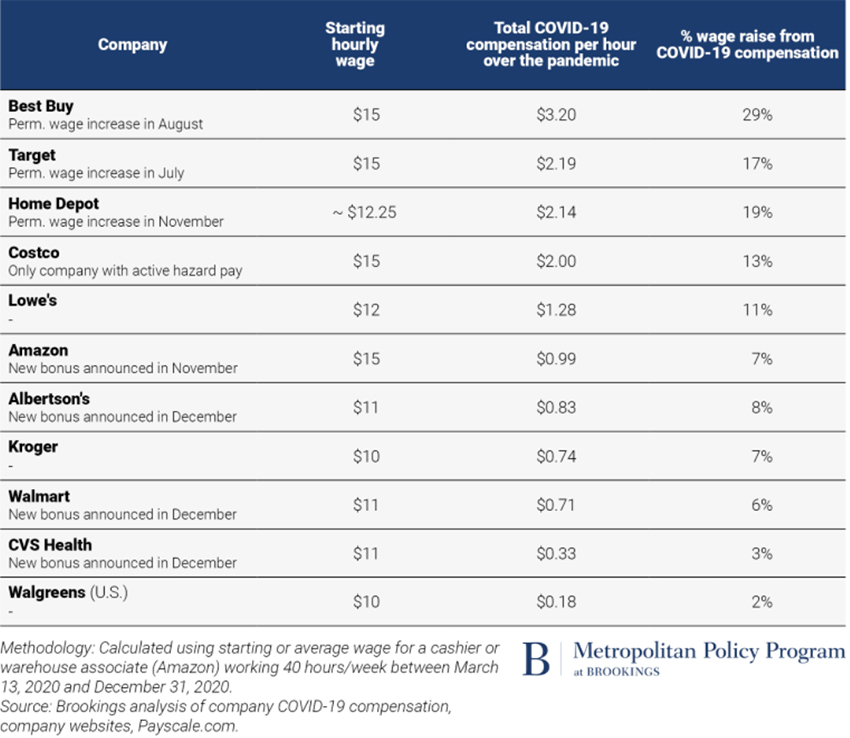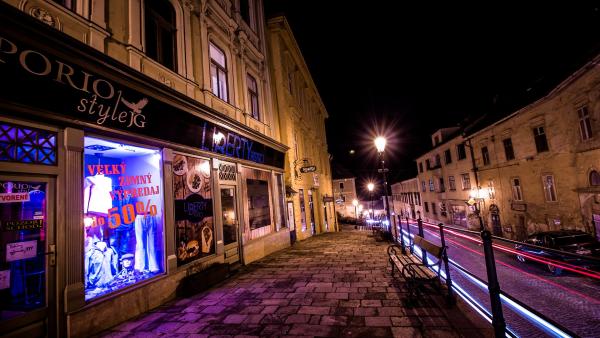Trigger Alert – the next paragraphs may contain political thoughts
That COVID-19 has changed the retail, dining, and grocery landscape is undeniable. A casual walk through your Main Streets will show the shuttered. But where did it go? Indeed we have not eaten or bought less. The Brooking Institute presents a visual clue.
“Wherever there is great property, there is great inequality.”

The image shows where much of Main Street went in dollars, to bigger businesses, not just Amazon or Walmart. There is much truth in the saying that the biggest enemy of small business is big business.
“Our merchants and masters complain much of the bad effects of high wages in raising the price and lessening the sale of goods. They say nothing concerning the bad effects of high profits. They are silent with regard to the pernicious effects of their own gains. They complain only of those of other people.”
The second truth in the image is how those funds moved from the multitude of small businesses that constitute our middle class to these two particular behemoths – far more to the owners than the workers. That is how capitalism works; I have no problem with that division. But some corporate owners were far more generous to their workers than others.

CVS Health defines its mission as
“Grounded in four pillars — Healthy People, Healthy Business, Healthy Community and Healthy Planet.”
But by the numbers, healthy people take a backseat to healthy business. Words matter. One of the difficulties with the phrase “defund the police” is the multiplicity of meanings. Does it mean disarm, disband, or simply to move some police “functions” to where people can be better served? I raise this only because the phrase, social justice, might be used in looking at those Amazon and Walmart profits. And like defund the police, social justice is a catchy but ambiguous phrase. Consumers have increased the wealth of some corporations and individuals enormously during the pandemic; those same consumers, when labeled taxpayers, will be asked to help out those small businesses that have been destroyed. So instead of thinking in terms of social justice, ask yourself, is it fair?
“Every man, as long as he does not violate the laws of justice, is left perfectly free to pursue his own interest his own way, and to bring both his industry and capital into competition with those of any other man, or order of men.”
Jeff Bezos and the Walmart family experience “windfall” profits, unintentionally, from the pandemic. The graphs showed that they pursued their interests, sharing little with their workers. They undoubtedly will share less with us; they have the best tax lawyers money can buy. As the vaccinated allow us to re-open our economy with less fear, many small businesses, the collateral damage of the pandemic, will not return. The “windfall” profits of the few would help mend the broken lives of small business owners.
“What improves the circumstances of the greater part can never be regarded as an inconveniency to the whole. No society can surely be flourishing and happy, of which the far greater part of the members are poor and miserable.”
This quote, along with all the others in bold, is from one of the original capitalists, Adam Smith, in both his Wealth of Nations and lesser-known, but perhaps more critical, Theory of Moral Sentiments. I mention this only because his sentiments are more the sounds of “social justice” than “compassionate conservatism.”




